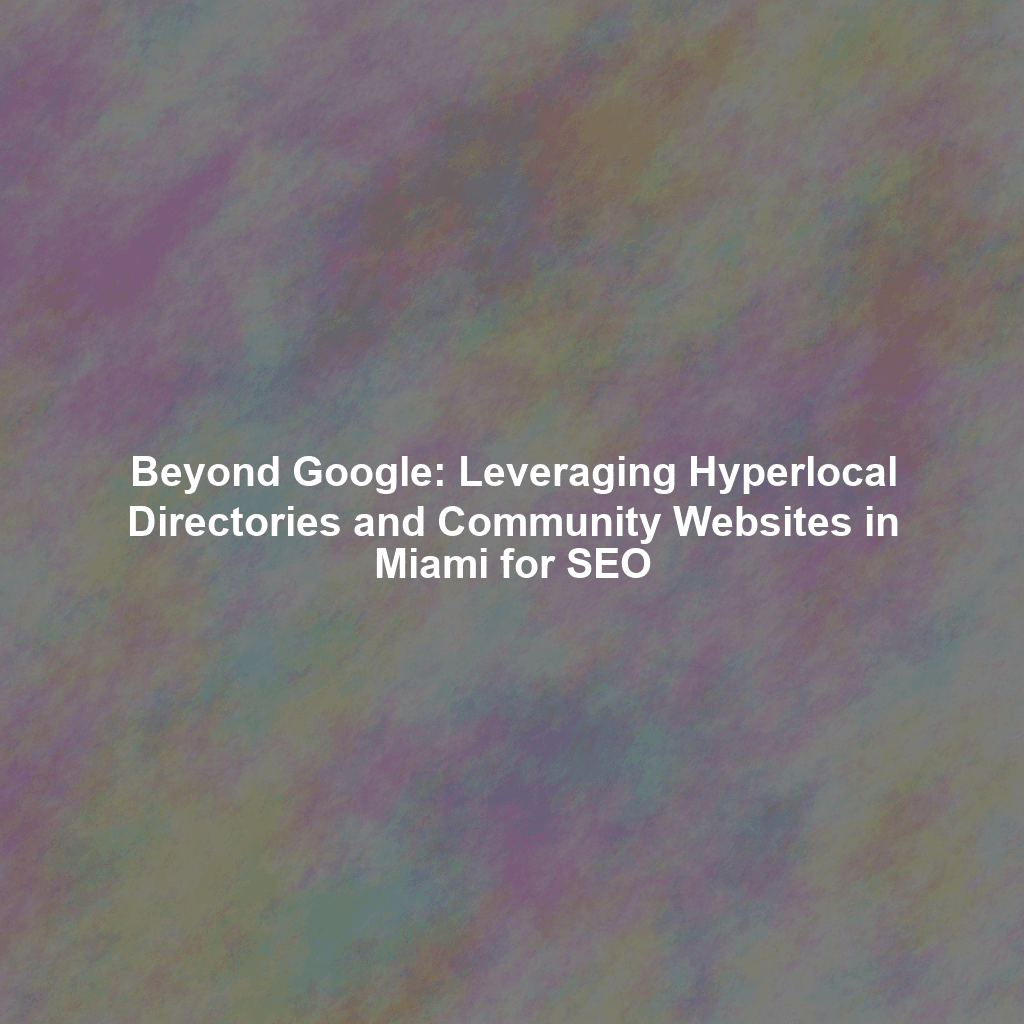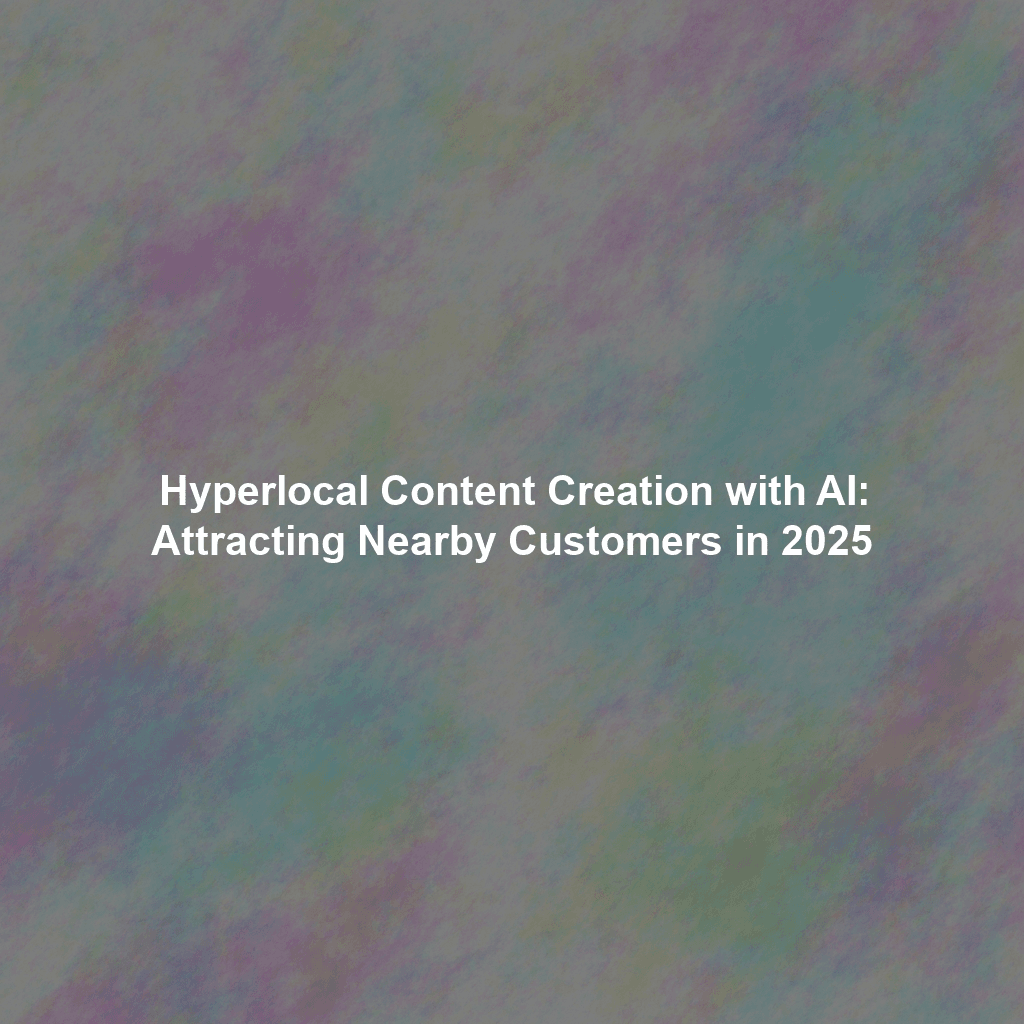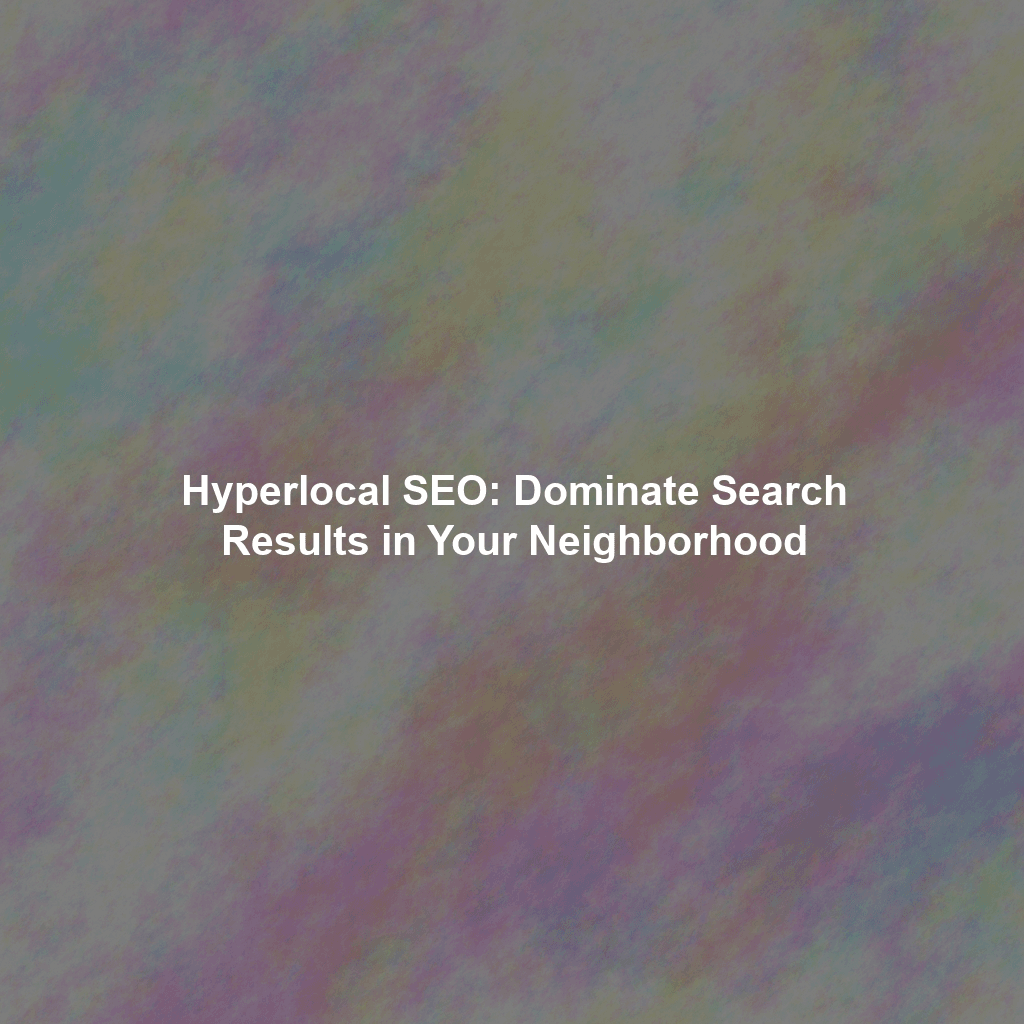Why Hyperlocal Matters for Miami Businesses
Miami is a city of neighborhoods, each with its own distinct character, culture, and online presence. Think of Little Havana, Wynwood, Brickell, South Beach – each has its dedicated online spaces. By focusing on these hyperlocal areas, you can:
- Reach a more targeted audience: People searching for businesses within their specific neighborhood are more likely to convert.
- Build stronger community ties: Being visible within local community websites demonstrates your commitment to the area.
- Increase brand visibility: More mentions across the web, even on smaller sites, contribute to overall brand awareness and SEO.
- Potentially drive more relevant traffic: Hyperlocal sites attract users specifically interested in the Miami area, leading to qualified leads.
Unveiling Miami’s Hidden SEO Gems: Hyperlocal Directories and Community Websites
So, where do you find these elusive hyperlocal goldmines? Here are some categories and examples to get you started:
Neighborhood Association Websites
Many Miami neighborhoods have active associations with websites that often feature local business directories. These are usually highly trusted resources within the community.
- Examples: Search for “[Neighborhood Name] Association Miami” on Google. Look for sites like “Brickell Homeowners Association,” “Coconut Grove Village Council,” or similar organizations.
- SEO Benefit: Listings on these sites demonstrate your connection to the specific neighborhood, improving your relevance in local search results.
Local Blogs and News Sites
Miami is brimming with independent bloggers and online news outlets that focus on local events, businesses, and community happenings.
- Examples: Think of sites like “Miami New Times,” “The Miami Herald’s local section,” or smaller niche blogs focusing on food, art, or specific neighborhoods. Consider blogs dedicated to events in Wynwood or design news in the Design District.
- SEO Benefit: Getting your business mentioned or featured on these sites can drive significant traffic and boost your domain authority through backlinks. Consider offering exclusive content or a special offer for their readers.
Tourism and Travel Websites
While obvious, don’t underestimate the power of local tourism websites. Many visitors rely on these resources to find restaurants, activities, and services.
- Examples: Official tourism websites like “Visit Miami” or “Greater Miami Convention & Visitors Bureau.” Look for smaller, neighborhood-specific tourism guides.
- SEO Benefit: Visibility on these sites puts your business in front of potential customers actively searching for things to do and places to go in Miami.
Community Forums and Online Groups
Facebook groups, Nextdoor, and other online forums dedicated to Miami neighborhoods are valuable for building relationships and promoting your business.
- Examples: Search for “[Neighborhood Name] Community” or “[Neighborhood Name] Residents” on Facebook. Explore Nextdoor for your specific service area.
- SEO Benefit: While direct SEO impact is limited, engaging in these communities builds brand awareness, drives referral traffic, and helps you understand local customer needs. Monitor conversations and participate authentically.
Niche Directories Specific to Miami
These directories cater to specific industries or demographics, offering a highly targeted reach.
- Examples: Directories focusing on art galleries in Wynwood, Cuban restaurants in Little Havana, or luxury boutiques in Bal Harbour. Look for directories specific to the type of business you operate. For instance, directories for yacht charters in Miami Beach or real estate agents specializing in waterfront properties.
- SEO Benefit: Being listed in relevant niche directories demonstrates your expertise and targets customers already interested in your specific product or service.
Finding and Vetting Hyperlocal Resources: A Practical Guide
Finding these hyperlocal gems requires some detective work. Here’s a step-by-step approach:
- Google is your friend: Use targeted search queries like “[Neighborhood Name] business directory,” “[Neighborhood Name] blog,” or “[Industry] in Miami.”
- Scout the competition: See where your competitors are listed. This can reveal valuable opportunities.
- Explore community calendars: Local events often have dedicated websites or listings on community calendars. These sites might also list local businesses.
- Ask around: Talk to your customers and other local business owners. They may have insights into relevant online resources.
Once you’ve identified potential resources, it’s crucial to vet them before investing your time and effort. Consider these factors:
- Relevance: Is the website relevant to your business and target audience?
- Authority: Does the website have a good reputation and a reasonable domain authority (DA)? Tools like Moz or Ahrefs can help you assess this.
- Traffic: Does the website receive consistent traffic? Similarweb can provide estimates.
- Listing Quality: What are the listing requirements and are they well-maintained? Are listings well-organized and easily searchable?
- Cost: Are there fees associated with listing your business? Weigh the cost against the potential benefits.
Optimizing Your Listings for Maximum Impact
Simply listing your business is not enough. You need to optimize your listings to stand out and attract customers.
- Consistent NAP (Name, Address, Phone Number): Ensure your NAP is consistent across all online platforms. This is crucial for local SEO.
- Compelling Description: Write a clear, concise, and engaging description that highlights your unique selling points and includes relevant keywords.
- High-Quality Images: Use professional-looking photos of your business, products, or services.
- Customer Reviews: Encourage satisfied customers to leave reviews on these platforms. Positive reviews build trust and improve your online reputation.
- Monitor and Respond: Regularly check your listings for accuracy and respond to customer inquiries or reviews promptly.
Conclusion: Embrace the Power of Miami’s Hyperlocal Online Scene
While Google remains a cornerstone of local SEO, neglecting Miami’s hyperlocal directories and community websites is a missed opportunity. By investing time and effort in finding, vetting, and optimizing your listings on these platforms, you can reach a highly targeted audience, build stronger community ties, and significantly boost your local SEO efforts. So, go beyond Google and unlock the power of Miami’s vibrant online ecosystem!
 Skip to content
Skip to content

